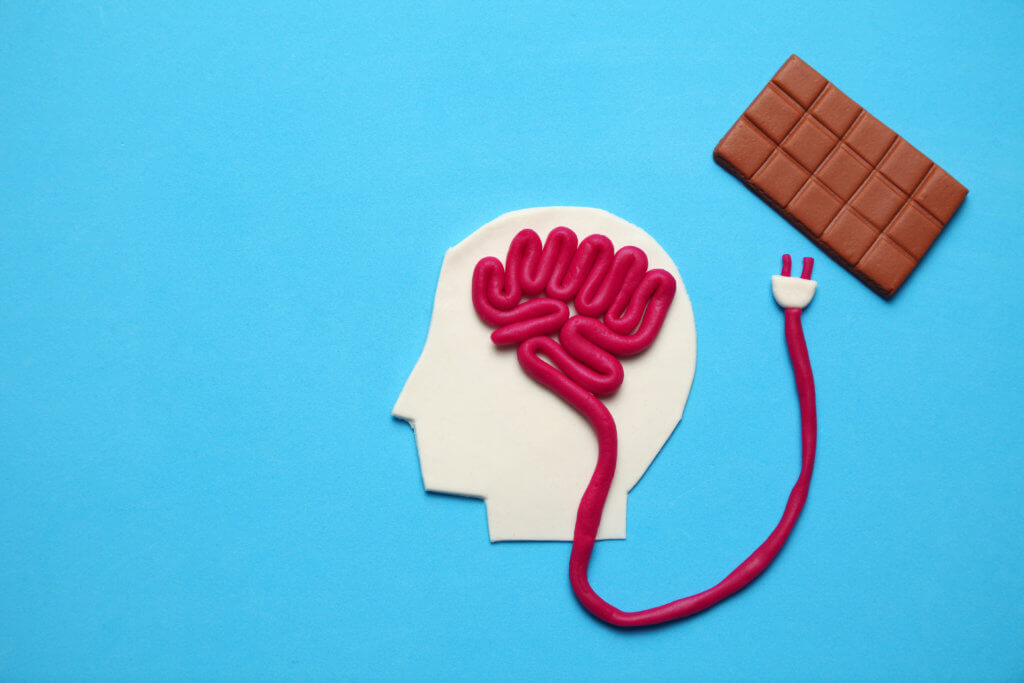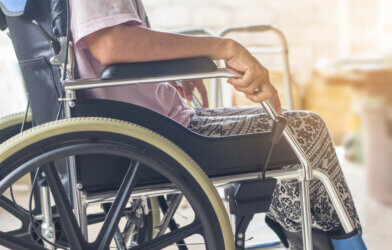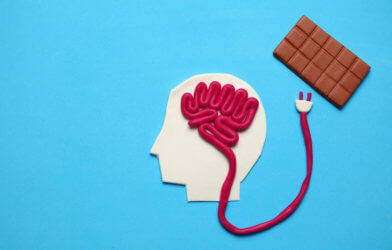A recent study reveals an area of the brain involved in regulating feeding behavior is impacted when there is a chronic presence of pain. The findings may explain why people with chronic pain experience weight problems.
Scientists say that the neurons involved in communicating a person’s motivation and pleasure are affected when someone experiences pain.
“These findings may reveal new physiological mechanisms linking chronic pain to a change in someone’s eating behavior,” says Dr. Paul Geha, assistant professor of Psychiatry at the University of Rochester Medical Center and lead author on the study, in a statement. “And this change can lead to the development of obesity.”
The team looked at the brain’s response after eating foods high in sugar and fat. Participants ate a gelatin dessert and pudding with researchers changing the amount of sugar, fat, and food texture for certain groups. They found no changes in eating behavior for participants who ate desserts high in sugar. However, they noticed a change in behavior for people who ate more fattening sweets.
Participants with acute lower back pain who later recovered did not enjoy their pudding as much as participants without pain. Further, participants with recovered back pain were more likely to have impairments in satiety signals — signals your digestive system sends to the brain to show you’re full — than participants with acute lower back pain whose pain lasted for at least 1 year.
However, the researchers observed that participants with chronic lower back pain eventually had trouble with limiting food high in fat and carbohydrates such as ice cream and cookies. Additional brain scans confirmed this group also developed issues with satiety signals.
“It is important to note, this change in food liking did not change their caloric intake,” adds Dr. Geha. “These findings suggest obesity in patients with chronic pain may not be caused by lack of movement but maybe they change how they eat.”
Brain scans showed an area called the nucleus accumbens — involved in decision-making, reward behavior, and feeding was smaller in participants whose eating behavior was normal but whose pain became chronic. The size and structure of the nucleus accumbens helped researchers predict how much people with chronic back pain would find pleasure in eating, indicating this region is important in motivating the behavior of people with chronic pain.
The study is published in the journal PLOS One.













I’m having trouble reconciling the headline, “Researchers find there really is a link between food, chronic pain,”
and the study author’s comment, “These findings may reveal new physiological mechanisms linking chronic pain to a change in someone’s eating behavior,” says Dr. Paul Geha, assistant professor of Psychiatry at the University of Rochester Medical Center and lead author on the study”
The headline makes an unqualified declaration of linkage, while Dr. Geha’s quote is not as certain: “really is” vs. “may reveal.”
Facts? We ain’t got no facts. We don’t need no facts. We don’t need to show you no stinking facts!
Headlines sell the click.
BS chronic pain is far more complicated than what one eats.
Exactly!
Fat and sugar are well know to produce euphoric endorphins and dopamine. What helps people in chronic pain feel better? Euphoric endorphins and dopamine. What happens if you consume too many calories (fat is particularly calorie dense)? Obesity. Who funds this stuff?
this article is poorly written. dang, make the sentences direct, rather than offset phrases.
Or there may be a link between pain and being hit by a car, and left for dead in a ditch having to crawl up to the guardrail on toes rapidly losing blood because foot has been almost severed while bone protrudes…while bleeding profusely from the back of head which took the side mirror off as it smashed onto it . We won’t mention this though…wink and nod.
Or maybe being in pain makes you not want to exercise.
All I know is that I had a chronic pain issue die to autoimmune rheumatoid arthritis then I stopped eating meat and slowly found I didn’t need the meds anymore. Eventually I was pain free and medication free. It’s been years. Now if I eat any land animals or anything derived from them I have a flare up for about a day and then it’s gone when I continue to avoid meat.
The drugs prescribed for chronic pain have weight gain as a side effect.